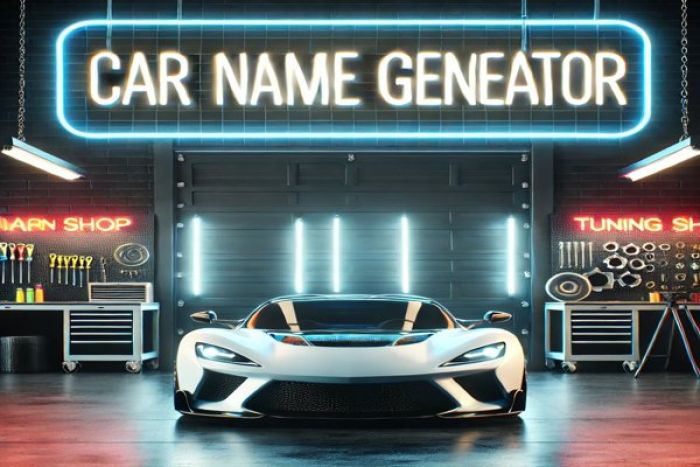The Stop/Start Technology carried by Jeeps and Chryslers has a noble goal in mind. It mainly works to help people save fuel and reduce their emissions by reducing the amount of time idling or by minimizing fuel combustion. This is particularly useful during long waiting times at traffic lights or traffic jams. Although the technology is no longer new, many new models of vehicles from other brands, especially those operating on hybrid powertrains are now widely adopting it.
Stop start not ready, cabin cooling or heating message highlights
- Common reasons:cabin temperature is too high or low, climate control sensors aren't working
- How to fix:wait till AC or heater does its job, check the sensors
- Possible consequences:this may result in worse gas mileage
- Priority level:Low
- Can you drive?Yes
- DIY repair:Possible
- Repair price range:$0-$200

How Stop/Start Works in Jeeps and Chryslers
Stop/Start Technology is an automatic feature available in Jeep and Chrysler vehicles that stops and restarts the vehicle's engine when certain conditions are met. This aims to enhance fuel efficiency and reduce greenhouse gas emissions by deactivating the engine when not needed.
Since it operates automatically, the tech requires no effort on the part of the driver and does not need constant checking of your battery's power. Intelligent sensors monitor the vehicle and battery systems, which generate the input needed by its computer to restart the engine as needed. This way, passenger comfort is also put into priority. This helps maximize the frequency and duration of the engine remaining in Auto Stop mode when driving normally.
When a vehicle equipped with it comes to a complete stop while driving, Stop/Start Technology may turn off your vehicle's engine. When this happens, the tachometer needle will go to the "Auto Stop" position. Once you let go of the brake pedal, the engine will start immediately under typical driving conditions.
To preserve vehicle performance and to ensure the comfort of its driver and passengers, conditions such as A/C, current battery charge, or other factors may cause the engine to restart automatically before you release the brake pedal.
Most Common Causes of the Problem
The technology certainly has its benefits but there are also times when it malfunctions. Most of the time, you are warned of the problems in the system in the form of a "Stop Start Not Ready Cabin Cooling or Heating" error on the dashboard, and sometimes, it can even force your engine to stall.
When encountering this message, there are a few things that you can do to diagnose and fix the cause of the issue. According to owners and car technicians familiar with this particular problem in Jeeps and Chryslers, here are the factors that usually trigger them:
1. Low Battery Voltage or Charging System Issues
It's no rocket science, but if your vehicle is experiencing a power shortage, its electrical components especially the sensors and the engine control unit (ECU), have a high risk of producing all sorts of errors. This could falsely activate the "Stop Start Not Ready Cabin Cooling or Heating" in your dashboard coupled with other signs like flickering or dimming lights, infotainment system errors, and rough starts with the engine.
When diagnosing a potential problem with your battery, start by checking if the battery is installed correctly. Do a wiggle test on the cable connectors to see if they snuggly fit in the terminals of the battery. Fix or replace them as needed. Check for signs of dirt or corrosion in the terminals also that could hinder the flow of electricity.
Sometimes, you can easily remove those using a clean cloth or a cleaning solution recommended by your automaker. However, if the corrosion has already eaten away the terminals, you may need to replace the connectors or even the battery itself.
If there are no visual cues indicating any kind of problem in the installation of the battery, proceed by evaluating the condition of your auto's charging system. This can be done by testing the volts in the battery with a voltmeter while the engine is running. The reading should be between 13.8 and 14.4 volts. If it's not, there may be an issue with your alternator or voltage regulator. Replace them if necessary.
If the charging system checks out, you'll want to test the health of your battery next. This can be done with a load tester or by using a multimeter to test the battery's voltage. A healthy battery should read around 12.6 volts with no load and should not drop below 10 volts when under load. If your battery is showing signs of a power shortage, it will need to be replaced.
2. Faulty Sensors
The Stop/Start Technology in our Jeep or Chrysler heavily relies on the data gathered by the sensors. So, if any of your sensors are malfunctioning it could falsely trigger the "Stop Start Not Ready Cabin Cooling or Heating" Error.
To assess the quality of your sensors, you will have to consult the data given by the scanner. Once you have plugged in the scanner, pay close attention to the readings of the following sensors: Engine Temperature Sensor, Cabin Temperature Sensor, and Battery Voltage Sensor. These sensors are located in different places depending on the model and year of your Jeep or Chrysler.
The most common cause of false triggering is a faulty Cabin Temperature Sensor. This sensor is responsible for measuring the temperature inside the cabin. If it's not working as it should, it could send false data to the computer, which would then trigger the error.
The easiest way to test if your Cabin Temperature Sensor is working well is by using a multimeter. Simply set the multimeter to "DC Volts" and touch the leads to the sensor's terminals. You should see a reading of around 5 volts. If you don't, then your sensor is most likely faulty and needs to be replaced.
Another possible cause of false triggering could be a low battery voltage. Simply apply the steps shown previously to evaluate your battery as well as its sensor and charging system.
Next, examine the engine temperature sensor. This sensor is located on the engine block, usually near the thermostat housing. To test it, simply unplug the sensor and use a multimeter set to "resistance" or "ohms." Touch the leads to the sensor's terminals and you should see a reading of around 5 k ohms. If you don't, then your sensor is most likely faulty and needs to be replaced.
If possible, conduct a thorough check-up even on the other sensors of your vehicle using the same method shown here, and if all of your sensors seem to be working properly, then the problem could be with the Stop/Start system or the engine. In this case, you will need to take your Jeep or Chrysler to a qualified mechanic or dealership for further diagnosis.
3. ECU Malfunction
If your Jeep or Chrysler's ECU malfunctioned, it could trigger the "Stop Start Not Ready Cabin Cooling or Heating" message in the dashboard. The ECU controls various electronic systems in your vehicle. If the ECU is not working properly, it can affect the cabin temperature system and even the engine, causing the message to appear.
There are several possible causes of a fault in the ECU, and the most common are calibration issues and corrupted software. Some of these problems can be fixed by flashing the ECU, which is updating or reprogramming it with new software. This should not serve as an all-encompassing solution to remedy the errors or performance issues triggered by defective, worn, or damaged parts though.
4. Engine Problems
Lastly, issues with the engine could be preventing the Stop/Start Technology of your Jeep or Chrysler to function properly. Check it for any signs of overheating, lubrication problems, ignition timing troubles, leaks, and worn parts that could be hindering its proper operation.
Disabling the Stop/Start Function
In reality, the benefits of the Stop/Start Technology can hardly be felt. In comparison to the vehicles without it, the actual savings when it comes to fuel consumption have proven to be minimal in many instances. Thus, a lot of consumers have this notion that the feature is only forced on them as the vehicles equipped with it have no way of disabling it.
As there has been a growing number of Jeep and Chrysler owners who have had frustrations with this function of their vehicles, many have resorted to products that can disable them. This has created a major demand for products such as Auto Start/Stop Delete, Disable, or Eliminator in the market, which have served as an alternative solution to the problems mentioned in the previous section of this article.
Most Auto Start/Stop Delete, Disable, or Eliminator products come as a smart plug-and-play device for your vehicle. When you switch off the auto start-stop option, it remembers and keeps your preference for this specific operation automatically. This device eliminates the need for you to deactivate the auto start-stop feature manually after each ignition cycle.
We are in no way promoting these kinds of products as there are many risks associated with trying to bypass the basic functions of your vehicle. With that, be sure to exercise due diligence when considering any of them. Research for authentic reviews of the tool, the legitimacy of the seller, and the overall quality of the device you are considering before buying one. This is to avoid getting ripped off from a substandard, ineffective, or potentially damaging product.
Conclusion
The "Stop Start Not Ready Cabin Cooling or Heating" error in Jeeps and Chryslers can be due to one or several factors ranging from electrical to mechanical issues and sometimes both. Therefore, the best way to tackle this problem early on is by bringing your Jeep or Chrysler to a specialist for diagnosis and repairs, especially if the issue is a recurring matter already.
About the authors
The CarAraC research team is composed of seasoned auto mechanics and automotive industry professionals, including individuals with advanced degrees and certifications in their field. Our team members boast prestigious credentials, reflecting their extensive knowledge and skills. These qualifications include: IMI: Institute of the Motor Industry, ASE-Certified Master Automobile Technicians; Coventry University, Graduate of MA in Automotive Journalism; Politecnico di Torino, Italy, MS Automotive Engineering; Ss. Cyril and Methodius University in Skopje, Mechanical University in Skopje; TOC Automotive College; DHA Suffa University, Department of Mechanical Engineering






Add comment